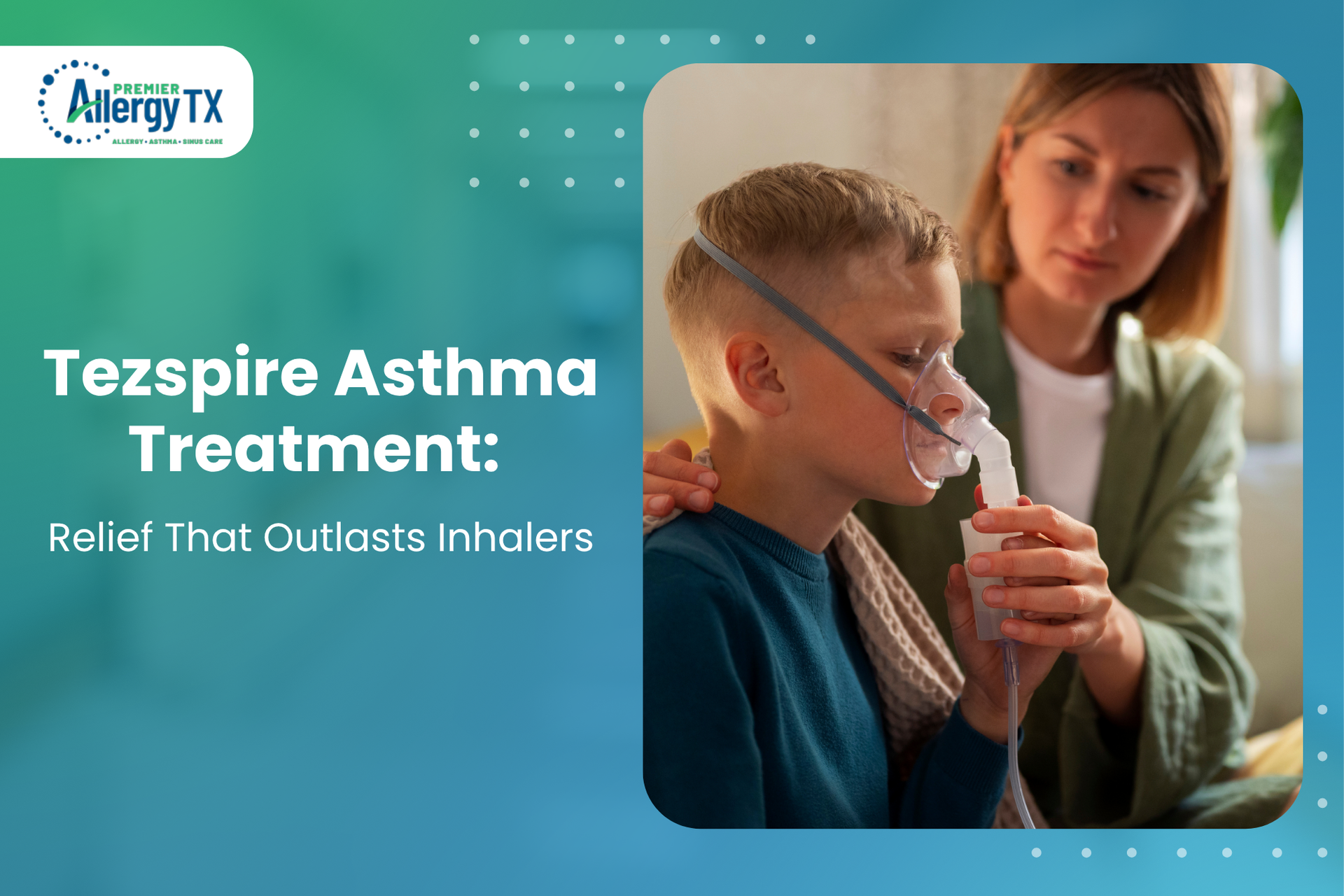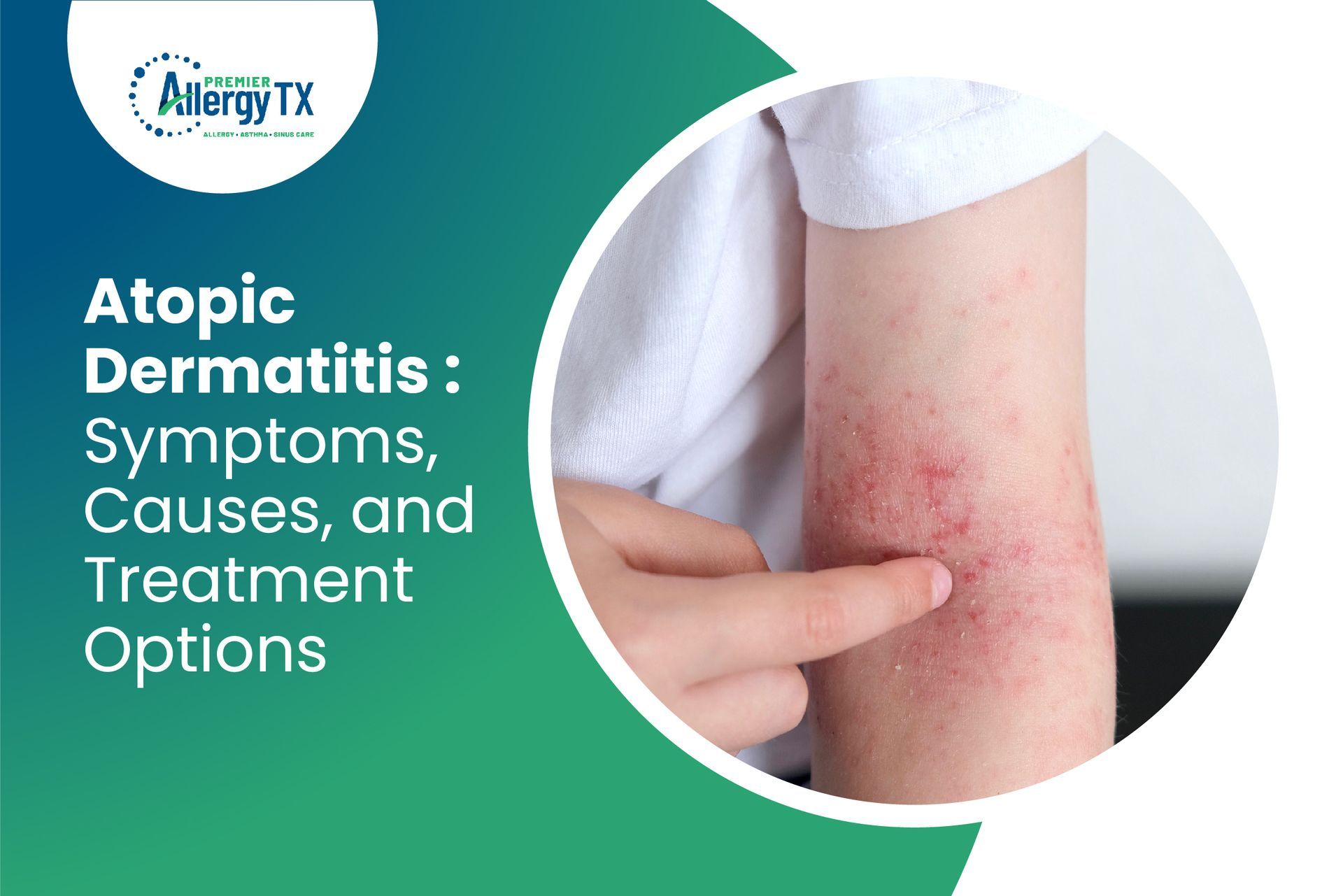Back to School Allergy and Asthma Symptoms

Prepare now so your child eases into a symptom-free year
For kids with allergies and asthma, summer break from school can also mean a break from their symptoms. When school starts up again in the fall, classrooms are often filled with allergic triggers kids don’t face at home, causing parents to see a return of allergy and asthma symptoms they haven’t seen since school let out for the summer.
“In the fall, allergists see an increase in kids’ visits for allergies and asthma because of a combination of factors,” says allergist specialist doctor John Freiler, MD, Premier Allergy TX. “And hospitals see what’s known as the ‘September Spike’ because kids who have been off asthma controller medications for the summer start experiencing flare-ups in the fall. When kids return to school, they’re exposed to different allergens – in the classroom, out on the playing fields, and in the school cafeteria – many that they probably haven’t run into all summer. In addition, it’s ragweed season, and for kids who are allergic, it’s a terrible time of year.”

Five Tips to Avoid Fall Allergies
Help your child steer clear of fall allergies in order to focus on classwork and school activities rather than suffering from runny noses, headaches, and asthma attacks.
1.Find an allergist, find relief – Well before your child heads into the classroom, make an appointment to see our board-certified allergist. Your allergist will create an allergy action plan for your child by identifying triggers your child may run into and helping them understand what causes their symptoms. Children with asthma under the care of an allergist have a 77 percent reduction in lost time from school, and an allergist can set your child on the right track, for the long term, to handle their allergies or asthma.
2. Identify potential problems at school – Sometimes, parents must act as detectives to root out asthma and allergy triggers at school. Potential triggers should be discussed with the teacher and school administrators to help ease symptoms.
- Does the school have new carpeting?
- Sometimes volatile organic compounds (known as VOCs) can result from new carpeting and cause wheezing and sneezing.
- Are there open windows where pollen can drift into the classroom?
- Is there a class pet that might be causing allergies?
- How about mold in the bathrooms?
3. Everyone out on the field! – If your child has asthma or allergies, they should still be able to play any sport they choose as long as they follow their allergist’s advice. While playground games, physical education classes, and after-school sports can all trigger exercise-induced bronchoconstriction (EIB), if your child’s asthma is under control, they should be able to participate. Asthma symptoms during exercise may indicate poorly-controlled asthma. Make sure coaches and physical education teachers know what to do in case of an asthma-related event.
4. An allergist can confirm a food allergy diagnosis – Parents are sometimes given misinformation about food allergies thanks to home tests and unreliable sources. About 5 to 8 percent of children have been diagnosed with food allergies, and it’s important to work with an allergist to arrive at the diagnosis. If your child does have a food allergy, make sure the school is fully informed. Work with your allergist and school staff to have an action plan that lists the foods your child is allergic to, what treatment needs to be given, as well as emergency contact information.
5. Prep your child – Make sure you’ve discussed how to handle emergencies with your child. No matter what state you live in, your child has the right to carry and use asthma and anaphylaxis medications at school. Children who are at risk of anaphylaxis should have auto-injected epinephrine available to prevent the severe, life-threatening reaction caused by allergies to certain foods or insect stings. Be sure your child and school staff know how to use emergency medications.
A board-certified allergist is the specialist best trained to treat your child’s allergies or asthma. Work with them to make sure your child’s allergy medications are appropriate for their height and weight, their asthma action plan is up-to-date, and that symptoms are under control.
To make sure you’re fully prepared for the fall,
contact us at 210-764-6567 or by email for an allergist specialist doctor in San Antonio.
Back to School Frequently Asked Questions (FAQs)
What are common triggers for allergy and asthma symptoms during the school year?
Common triggers include classroom dust, mold in older buildings, pollen brought indoors, pet dander from classmates, and exposure to respiratory infections. Changes in routine and stress can also aggravate symptoms.
How can I help my child manage allergies or asthma at school?
Ensure your child takes prescribed medications regularly, provide the school with an updated action plan, and communicate with teachers, nurses, and staff about your child's specific needs and triggers.
Should my child take allergy or asthma medication before school starts?
Yes, it’s recommended to begin preventive medications 1–2 weeks before school starts, especially if your child has a history of seasonal allergies or asthma flare-ups during fall.
Can poor indoor air quality at school worsen my child’s symptoms?
Yes. Classrooms with dust, mold, or poor ventilation can trigger allergies and asthma. Talk to school staff about potential concerns and request seating accommodations if needed.
How can Premier Allergy TX help manage back-to-school allergy symptoms?
Our team offers comprehensive testing, customized treatment plans, and immunotherapy options to help your child stay symptom-free throughout the school year. We also collaborate with families and schools to ensure your child receives the right care and support.












